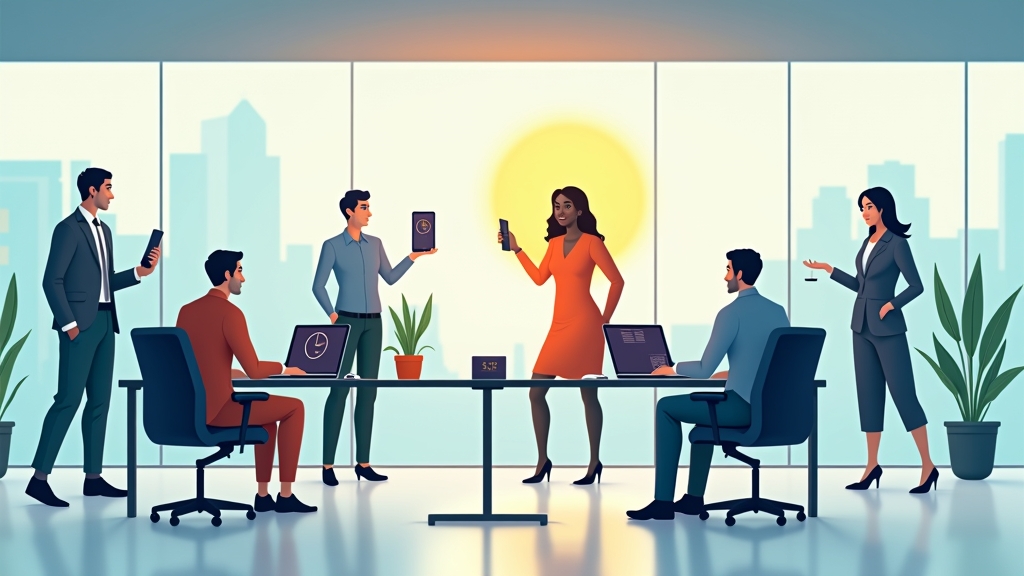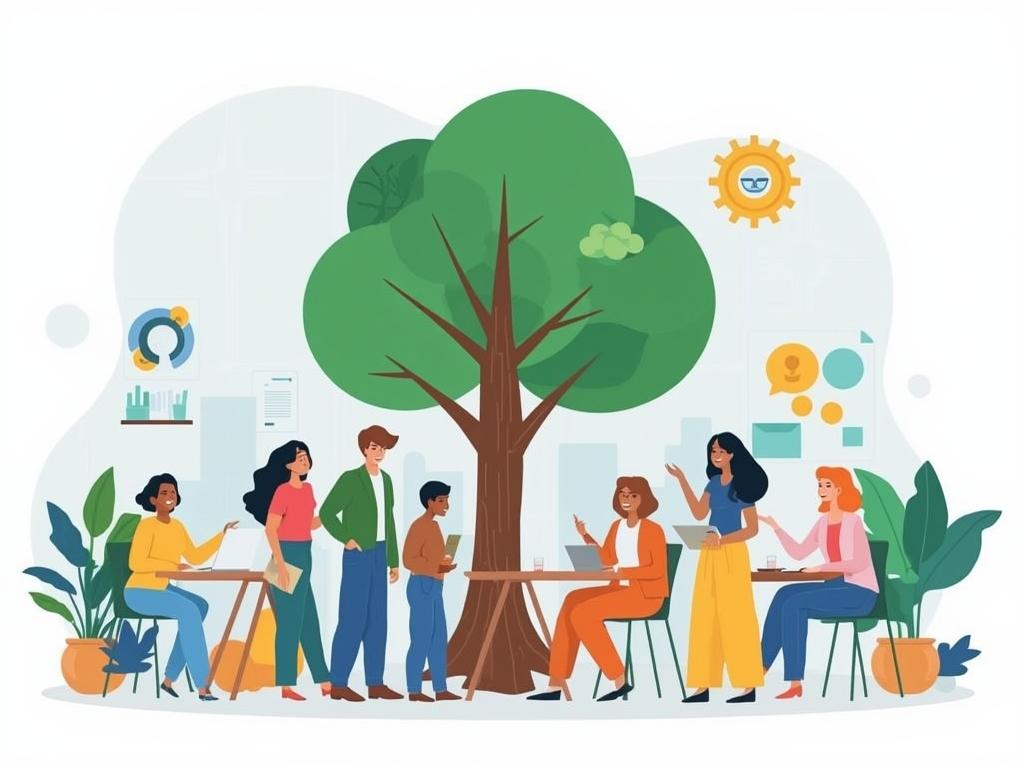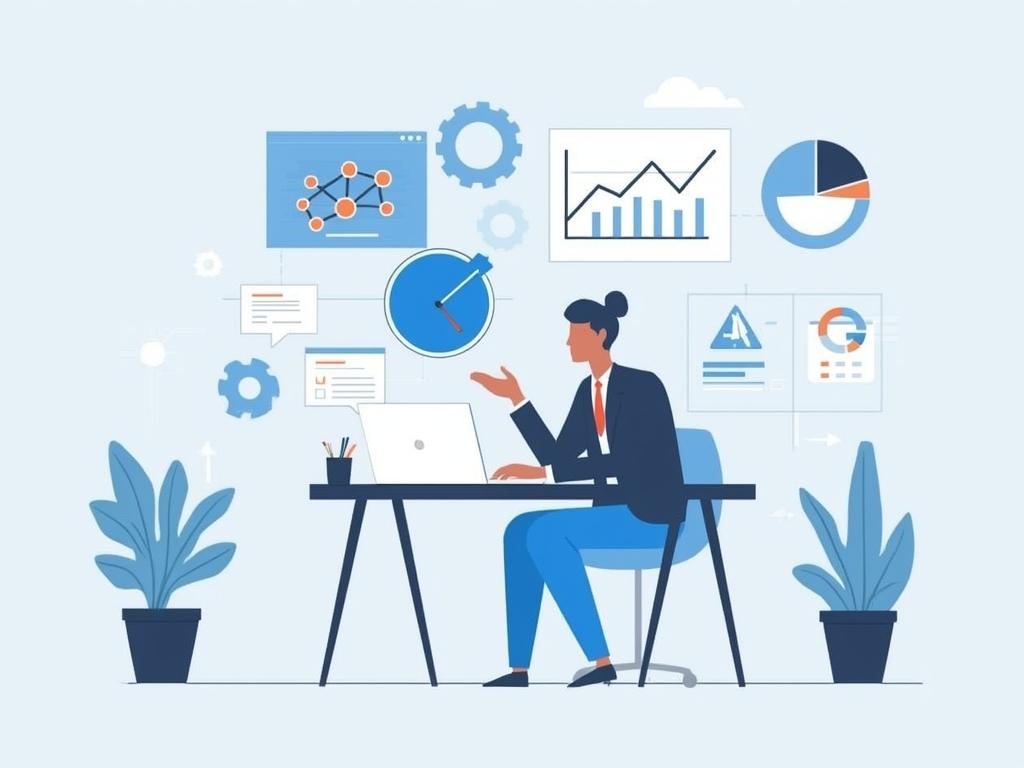The Rise of "Disconnection Jobs": A New Professional Horizon
Imagine finishing your workday and, instead of taking your worries home with you, being able to completely disconnect from work. Sound like a distant dream? For many people, yes. But what if there were professionals dedicated to making it a reality? That's what "disconnection work"This is a growing trend in the job market.
With accelerated digitalization and the "always online" culture, companies and employees face unprecedented challenges in balancing personal and professional life. BurnoutAnxiety and a drop in productivity are just some of the consequences of this lack of boundaries. This is where disconnection specialists come in, helping to create healthy habits and corporate policies that respect offline time.
Have you ever stopped to think about what your life would be like with fewer notifications and more presence at the moment? This article will explore how this demand is shaping new careers, what skills are needed and why this could be the future of well-being at work.
What Are "Disconnection Jobs" and Why Did They Come About?
"Disconnection work" refers to functions or consultancies that specialize in helping individuals and organizations establish clear boundaries between their digital and personal lives. These professionals act as balance facilitatorsand creating strategies to reduce device dependency and information overload.
But why has this need arisen? The answer lies in the evolution of remote working and the culture of hyperconnectivity. With the pandemic, the home office has become the norm for many, but it has brought with it the difficulty of "disconnecting". A study by International Labor Organization shows that 41% of remote workers experienced higher levels of stress due to the lack of separation between home and office.
In addition, social networks and instant communication tools have created the expectation of 24/7 availability. How many times have you checked your email before bed or replied to work messages on Sunday? This behavior, initially seen as productivity, is now recognized as a threat to mental health.
Advertising
Visionary companies have realized that overworked employees are less creative and engaged. Hence the search for specialists to help reverse this scenario. Disconnecting isn't a luxury - it's an operational necessity.
How do these professionals work in practice?
You may be asking yourself: "What exactly does a disconnection consultant do?" The work can vary, but generally involves three pillars: diagnosis, training and policy implementation.
First, the professional assesses the organizational culture. This includes employee surveys, analyzing communication flows and identifying "leak points" - moments when work invades personal life. For example, a company may discover that 70% of Slack messages occur after 6pm, indicating a boundary problem.
Next comes training. Workshops on digital time managementMindfulness techniques and even "technological detoxes" are commonplace. A real case: the consultancy Digital Detox helped a startup reduce unnecessary meetings by 40%, freeing up hours for focused work.
Finally, there is the creation of concrete policies. Some companies adopt "quiet hours" (no emails after a certain time), while others implement "no meeting days". The key is to customize solutions. After all, what works for a bank may not work for a creative agency.
What Skills Do You Need to Become a Disconnection Specialist?
If this career has piqued your interest, it's time to understand what skills are valued. There is no single training courseBut some skills stand out.
Knowledge of organizational psychology is fundamental. Understanding how digital stress affects teams makes it possible to create effective interventions. Courses such as those offered by American Psychological Association can be a good starting point.
Another skill is facilitating cultural change. Convincing a company to abandon old habits requires diplomacy and data. For example, showing that disconnected employees are 30% more productive (as proven in a study by Harvard Business Review) can be a powerful argument.
It is also useful to master digital productivity tools. Apps like Freedom or RescueTime help monitor and limit the use of devices. Knowing how to configure them for entire teams is a plus.
Finally, empathy and active listening. Each person has a unique relationship with technology. A good specialist doesn't impose rules, but co-creates solutions with employees.

The Impact of Disconnection Jobs on Companies
The results of this approach are already measurable. Companies that invest in disconnection report from improved well-being until increase in profits.
An emblematic example is Boston Consulting Group. They tested mandatory "sign-off" periods and saw not only employee satisfaction go up, but also the quality of the work delivered. Projects that previously required multiple revisions were approved more quickly.
Another benefit is talent retention. Professionals value employers who respect their personal time. A report by Gallup reveals that 53% of employees would change jobs for a clearer balance policy.
There are also impacts on creativity. Tired minds produce fewer innovative ideas. By ensuring real breaks, companies reap fresher and more original insights. A IDEO, famous for its creative culture, has strict rules against overtime for this very reason.
How can ordinary people benefit from this trend?
You don't need to be a consultant or CEO to apply these principles. Small changes already make a difference.
Start by making a inventory of your digital time. How many hours do you spend on work apps outside of working hours? Tools such as Screen Time (iOS) or Digital Wellbeing (Android) provide this data for free.
Also try transition rituals. If you work from home, a short walk after work signals to your brain that the day is over. Or create a "shutdown checklist": close browser tabs, turn off notifications and write down tasks for the next day.
Another tip is to negotiate clear expectations with your boss. Instead of answering messages at all hours, arrange specific times for urgent communication. Many managers welcome this when they understand the benefits.
The future of disconnection work
This trend is here to stay. As artificial intelligence takes over repetitive tasks, the value of human work will be increasingly linked to creativity and well-being.
Some experts predict that in ten years' time, "shutdown directors" will be as common as HRs. They will be part of the C-level, ensuring that the company culture promotes mental sustainability.
In addition, the demand for certified training will grow. Educational institutions are already starting to offer courses in this area. A Coursera, for example, has programs on digital balance with recognized certification.
What about you? Are you ready to rethink your relationship with work and technology? Whether it's adopting healthier habits or exploring this new career, one thing is certain: the future belongs to those who know when to press the pause button.
First Steps to Becoming an Agent of Change
If after reading this article you feel that you could be a promoter of disconnection, here are concrete actions to get you started:
1. Educate yourself: Read books like "Digital Minimalism" from Cal Newport or take online courses in digital wellbeing.
2. Try itApply techniques to your routine before teaching them. Your credibility will come from real experience.
3. Networking: Connect with other professionals in the field through platforms such as LinkedIn.
4. Offer help: Offer a free workshop at your current company. The feedback will be your best gauge.
The disconnection revolution is just beginning. And you can be part of it - both as a beneficiary and as a protagonist. How about taking the first step today?



